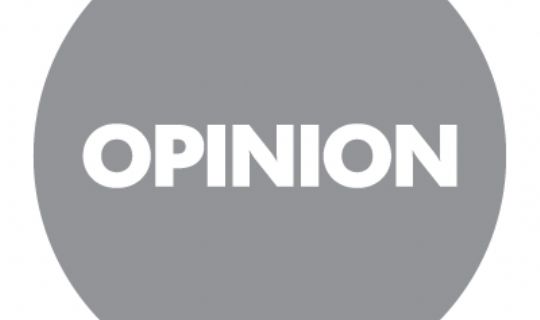
Blinding
Will the world remain a mere spectator to the results of the blinding that has emerged at the beginning of the 21st century, despite similarities to historic examples that heralded great catastrophes?
I did not live during the period of war; however what we read shows us that only one motif played a role in people’s behavioral models during that extraordinary period of war: The struggle to stay alive.
The natural reflex of a person who has not yet been targeted by the war condition; the great destruction, the death of relatives, the unprecedented injustices and unmatched evil, always focuses on “how I can survive”. In a sense, they move from thinking individuals to the animal reflex mode of survival. As a result, due to their fear of death they are afflicted with the disease that we call blinding.
While I cannot speak on your behalf, the writer of these sentences regards the reactions, or more accurately lack of reactions, of individuals facing the events of our present world as similar to the behavior of people during war. Naturally, these events I mention are not at the magnitude of the destruction and evil of war. However, I would like to draw your attention to the fact that ignoring the problems caused by the economic, cultural and political polarization that is becoming increasingly widespread across the world is a new form of blinding.
What are we doing to address the refugee crisis and catastrophe that is unfolding before our eyes? While watching and bemoaning the drama of those beautiful people who are struggling to achieve freedom and the chance to live like human beings, we continue to get lost in the tiny problems of our own lives and instead only remaining concerned about these tiny problems. Similarly, right after watching the images -that do not even last a minute- of the funerals of the youths who have been claimed by re-emergent acts of terror - of which the reasons are still unknown - we return to our self-involved lives without any delay.
We do not even complain about poverty, inequality or lack of education anymore, lest we be accused of “unfashionable leftism”. Indeed the bright lights of capitalism have increasingly placed us in the exact centre of the blinding. We have transformed into the quiet, cowering, desperate person of the war who refuses to hear or see due to their increasing fear of evil and death.
However, a person in fear is an individual who has lost their freedom and dreams and is not living like a robot. Just as in the universe of the Little Prince, everywhere is populated with boring people who have lost their powers of imagination. In such an environment, people are reluctant to leave the herd and instead chase after living similar lives to those in the herd. As their only goal is to increase their level of consumerism to the highest levels, they worship materialism. They do not care about their own freedom or the freedom of others. The problems and evils of the outside world, which their eyes see but their brains do not show, become mere morsels that they use in their conversations.
However, is this situation a sustainable life model?
Until what point can blindness continue?
***
Elias Canetti, author of “Blindness” – one of the most important novels of the 20th century – describes the blinding of people who herald the catastrophe of the 2nd World War through the use of the motifs of evil, lack of communication and individualism.
All of the heroes in the novel remain in their own little worlds and view the other, as they label it, world in a way that they cannot comprehend; they look at it but do not see it, they hear it but they do not listen to it. What occurs to them is a complete blinding, in a sense, a complete withdrawal. The protagonist of the novel Professor Kien, a man who lives alone in his own house with thousands of books, moves step by step towards blindness; even though he is terrified of going blind. Viewing the furniture and books of his little house as a problem, Kien begins closing his eyes so as to not see them and thus moves around the house almost as if he is blind. He enters an informed blindness, in which he is able to identify even his book with his eyes closed. Closing his eyes to escape from his problems and intentionally missing the truth, becomes his new life model. Our protagonist increasingly becomes removed from himself and undergoes change.
In the novel, evil manifests differently in each individual. In a world where everything is permissible for money, where reality has been reversed the individual is no longer even an individual.
The end of the novel is a catastrophe for everyone, including our protagonist.
What is even more interesting is that four years after the novel was written, the 2nd World War - a war that was to lead to the greatest destruction in history - started.
Canetti had thus assumed his place in history as a great author who would be able to recognize that the indifference he observed in his surroundings at the age of 28 would lead increasingly to blinding and this, in turn, would lead to a great catastrophe.
***
Will the world remain a mere spectator of the results of the blinding that has emerged at the beginning of the 2st century, despite similarities to historic examples that heralded great catastrophes?
While mankind continuously attempts to develop and perfect the tools that will allow us to continue our lives most efficiently, mankind itself has not changed since Adam.
This should be regarded as our greatest tragedy.
Related Newsss ss













